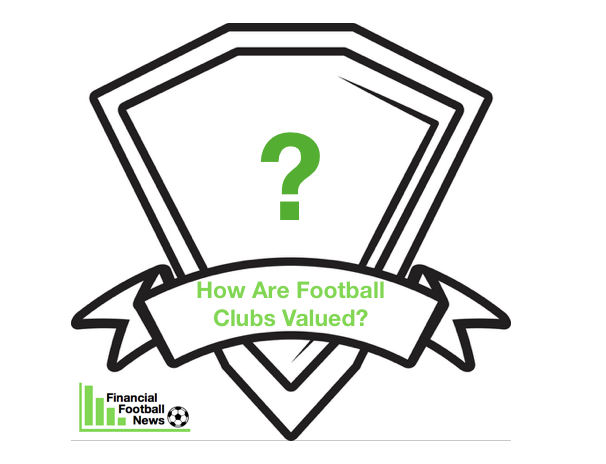Ever wondered how a football club is valued? This article looks to explain the key value drivers of football clubs for all of you wonderful readers. Enjoy!
Football clubs are similar to any other business in the world, they are valued in much the same way, however being a sport there are certain specific value drivers listed below.
Profitability
The main value driver of the majority of businesses is acquired in the corporate world is for their profitability and how much money they can make for their owner. This incentive extends to football and all sports clubs but to a lesser extent at times.
Profits allow a business owner to enjoy their earnings through dividends/pay-outs from the business out of these profits.
Premier League clubs in general have historically been loss making until recently, meaning such pay-outs were not available.
Despite this the value of clubs has risen significantly, this is because football clubs are often seen as investments, gaining their value from appreciation in the value of the club through capital appreciation rather than taking out equity from profits each year.
Revenue
Football clubs generally have experienced growing revenues year on year as the popularity and riches within the game increase significantly. This makes clubs more valuable to their owners as the cash inflows keep increasing. This increases the demand for what are significant cash generating assets as, broadcasting, commercial and matchday revenue continue to rise.
The promised increases in revenue, and their growth in excess of costs mean that sooner or later, profits (which they have begun doing so) will arise which will enable the owners to enjoy the increase value of their clubs through their capital growth as well as the immediate profitability.
Prospects / Growth
As mentioned above, the possibility of growth can greatly enhance the value of a football club. A club on an ‘upward trajectory’ will be seen as a great prospect for the wealthy to invest in.
This will include clubs with a great youth pool to exploit or a local community craving a return to the glory days.
This includes clubs owning an already strong playing squad which we will get into below.
Recent Performance
Football clubs like any other business live and die by their performance which can be influenced significantly. A promotion or two can really enhance a club’s value while promotion from the Championship to the Premier League can increase a club’s revenue in excess of £100m instantly.
A great example of this is Bournemouth, who despite the constraints in terms of stadium size and fan base, have seen revenue increase from £5.2m in 2013 (when in League One) to £136.5m last year, an outstanding 92% annual growth rate.
The complete opposite can occur as a couple relegations will see the valuation of a club plummet just like a couple poor trading years will do for a typical retail business.
This is unfortunately the fate clubs such as Portsmouth and Blackpool have experienced and most recently, Sunderland.
Playing Squad Strength
A strong squad is essential to performance and earnings, with a strong squad enhancing the prospects of trophies, promotions and strong campaigns in general.
These players are also assets to the business which can be sold for huge fees these days with clubs spending vast sums in recent transfer windows, allowing an owner to benefit from the sale proceeds for the less ambitious of owners.
It can also mean that an owner will not have to invest much more of their own cash in the club after purchasing the club as funds gained from transfer sales can be reinvested in the playing squad and the club as a whole.
Fan base / Social Media
Social media is a huge part of everyday life now and the value of organisations can thrive or shrivel based on their social media presence.
Clubs are creating more and more content online in order to boost followers and their social fan base, with the new generation inclined to support those that they resonate with the most online through constant interaction.
A quick look at most Premier League financial accounts will show social media followers as a key performance indicator as clubs look at ways to monetize their social following through enhanced merchandise sales and larger advertising contracts.
The size of a club’s fan base shows the potential for future financial growth, a growing fan base is ripe for monetizing and will enhance the value of clubs.
A large fan base means matchday revenue will be robust and demand high, meaning new stadiums and higher prices may be possible, further enhancing profitability and revenue, the key drivers of value.
Passion
Lastly, prospective owners / current owners are football fans too! The value of a club can be vastly inflated where the owner is a lifelong fan, or the prospective buyer is meaning this is the only club they want.
People of such wealth may not see the club as an investment and may view it as the pinnacle of the life goals and as such (albeit rarely) be prepared to pay vastly over the odds.
Thanks for reading! If you found this article interesting let us know and also feel free to ask any questions or request an article by mailing us at [email protected] or via Twitter or Instagram.

